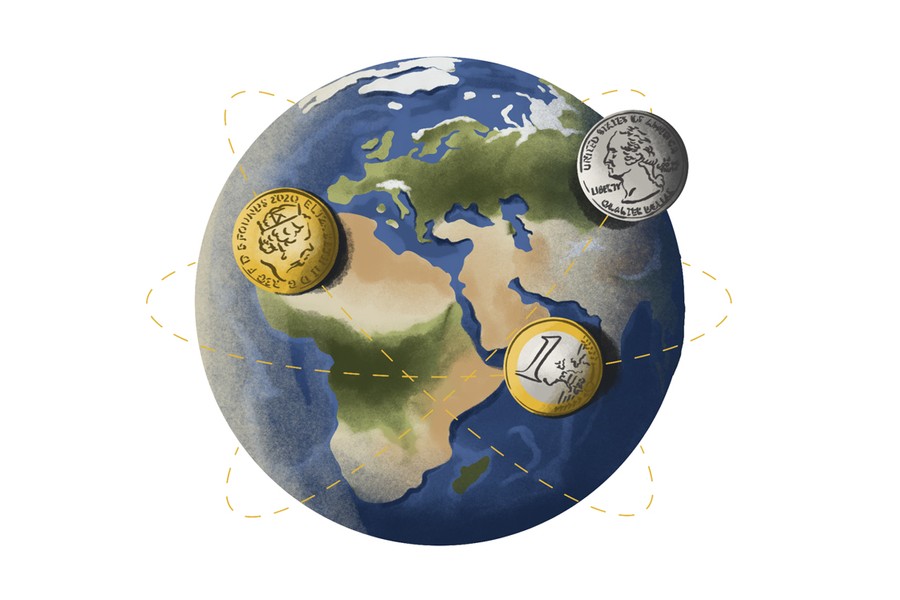Since 2020 and the COVID-19 pandemic the world has been constantly changing – creating major challenges for governments, businesses and families alike. One noticeable trend is that families and their members are becoming even more global than ever before. This is having a major influence on their choices when it comes to planning their wealth and succession strategies. Families and high net worth individuals are now adopting a much more globalised footprint, bringing with it the dawning challenges of how they manage everything on a day-to-day basis.
We are seeing examples of a son or daughter choosing to go to university in America rather than the UK, which raises the question of how their studies will be funded while they are in America. Managing the risk of properties that have been acquired in multiple jurisdictions may require extra funding or produce additional revenue streams in different currencies. The larger the footprint, the more geographical, geopolitical and tax issues raise their heads – requiring a more global approach with broader expertise. Many people may hold assets in multiple jurisdictions and therefore are subject to legislation in different countries, which adds to the complexity.
Nowadays many families need a whole team of advisers to help them through the minefield of developing a financial strategy. This team will normally include various lawyers, tax advisers, accountants, bankers and investment consultants; however, based on the diverse nature and reach of their global footprint, the services of an independent specialist currency adviser will often also be required.
Currency is probably one of the most overlooked, underestimated and necessary services required by any business, entrepreneur, family, or high net worth individual operating on the global stage.
Currency is probably one of the most overlooked, underestimated and necessary services required by any business, entrepreneur, family, or high net worth individual operating on the global stage. It doesn’t have to be complicated and if used correctly it could save or make you money, but used incorrectly or not at all it may lose you money.
So how does currency management work? Simply put, it is the purchase or sale of one currency versus the purchase or sale of another currency. For example, a UK client needs to buy US$50,000 to pay for his daughter’s annual university fees in America, so he needs to sell enough GBP to buy US$50,000. The current rate is 1.2275 so $50,000 will cost the client £40,733. That looks easy enough, so where’s the problem? Currencies are a 24-hour global market with prices changing all the time, so the client is likely to receive a very different price. If a client receives 1.2150 as a rate from his bank or broker, with their margin added on, that would mean US$50,000 costs him £41,152, an extra £419.
- Lesson No 1; It’s difficult to judge what is a good price on an arbitrary day and time with market prices constantly moving and banks and brokers charging different fees.
- Lesson No 2; A client is right in striving to achieve ‘best price’ when booking a trade but this should be the outcome of a clearly defined process to manage currency effectively. ‘Best price’ has become a mantra in the industry because that’s how banks and brokers believe they can differentiate themselves when selling their currency services. If a client always books currency trades at an arbitrary moment in time then they are not creating an environment whereby they are able to control and achieve their agreed objectives.
- Lesson No 3; Currency planning is a prerequisite. In the above example, annual university fees are US$50,000 but living and travel costs each year could amount to another US$50,000, bringing the annual cost to US$100,000. Over the four years, the family will need to buy US$400,000 to cover the anticipated cost of their daughter’s university education. This is an ideal framework to plan a currency strategy, allowing the family to manage the currency risk around the established payment deadlines, control the timing and amount of their purchases depending on market trends to minimise the cost by avoiding any adverse market movements in GBP/US$.
A good illustration of sudden highly volatile market activity was the Truss/Kwateng budget in 2022. Between the 15th August and 30th September the GBP to US$ exchange rate dropped from 1.2150 to 1.0325 around 15% but by 7th November it had moved back to 1.1855 – a 14.8% rise, eradicating most of the move. One man’s luck is another man’s pain but implementing a currency plan allows a client the opportunity to take advantage of favourable market trends or protect themselves against adverse market movements.
The information provided in this article is of a general nature and is not a substitute for specific advice with regard to your own circumstances. You are recommended to obtain specific advice from a qualified professional before you take any action or refrain from action.




